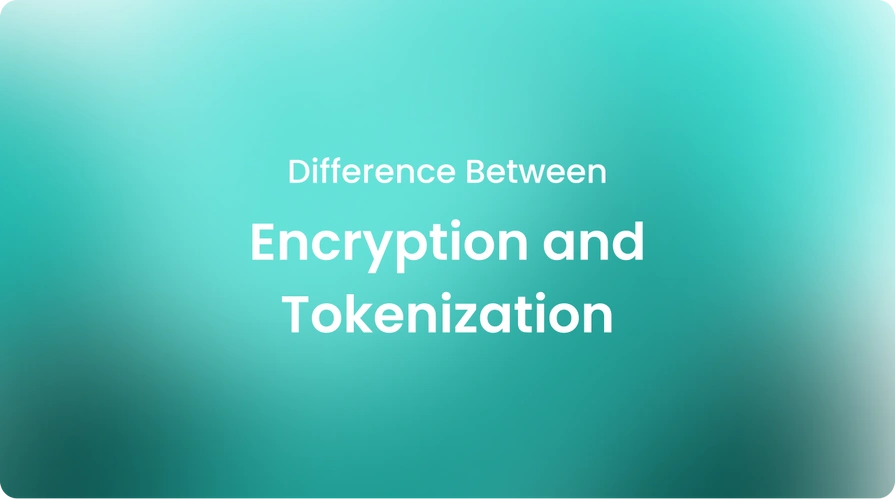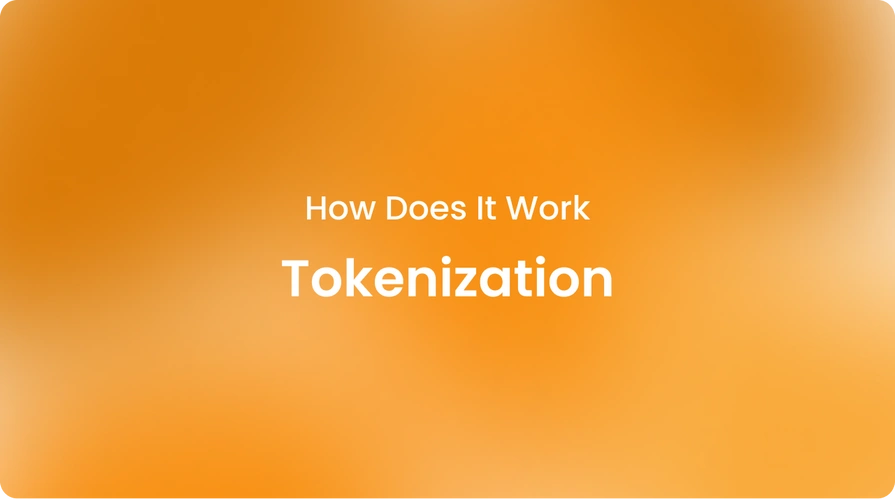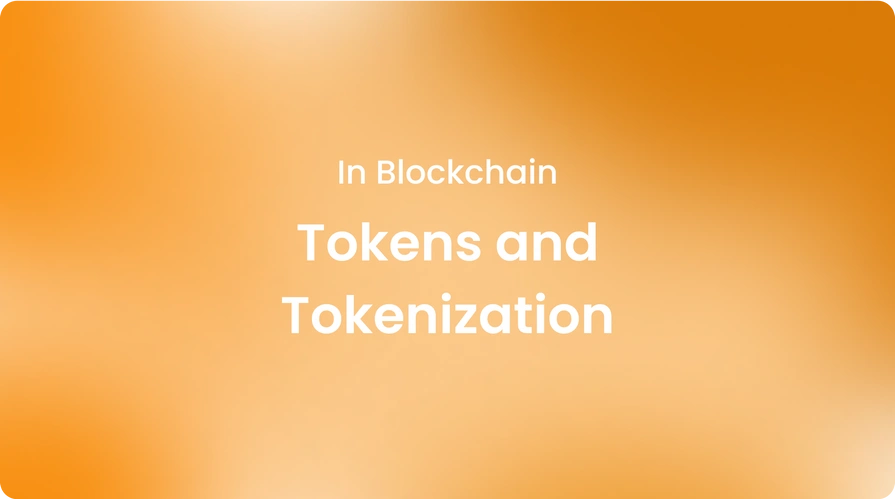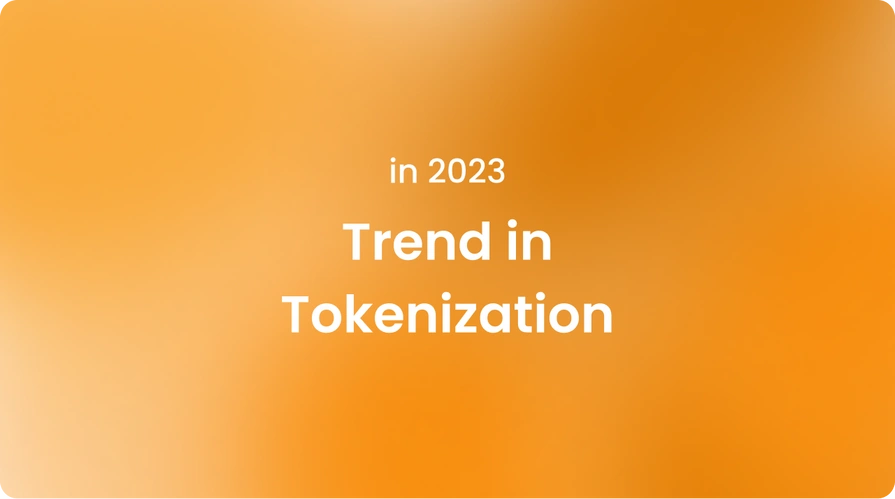|knowledgehub, technology
What Is the Difference Between Encryption and Tokenization?

Businesses must carefully consider how to protect customers when storing or transmitting sensitive data like payment details or personal information with encryption and tokenization solutions.
Digital privacy and security are increasingly important topics as more of our lives become online. There are two leading methods for securing data: encryption and tokenization. While both aim to obscure sensitive values, they achieve this goal in different ways.
In this article, we'll explore the key differences between encryption and tokenization, how each technique works, and when one may be preferable over the other. By understanding these concepts, organizations can make informed choices to bolster cybersecurity.
At their core, encryption and tokenization both scramble sensitive information to safeguard it from unauthorized access. However, their approaches diverge in meaningful ways.
Mathematical algorithms in encryption transform plain text into cipher text, an encoded format. Decrypting the cipher text back to plain text requires a key.
Tokenization, on the other hand, replaces sensitive values with unique strings called tokens. Tokens do not have any relationship with their original values and cannot be reverse-engineered.
Rather than mathematically manipulating data like encryption does, tokenization involves storing the mapping between tokens and secret values elsewhere, typically a tokenization system or "vault." Intercepting tokens prevents attackers from deriving the underlying secret information from them.
Overall, while both encryption and tokenization obscure data, tokenization provides an additional layer of protection by removing sensitive values entirely rather than just encoding them. Let’s continue exploring each method in detail!
What is tokenization in simple terms?
Tokenization is the process of substituting sensitive data with random strings, or tokens, that don't reveal the original values. Let's break it down step-by-step:
- A tokenization system identifies which pieces of data need protection, such as debit card numbers or social security codes.
- For each sensitive value, the system generates a unique token, typically an alphanumeric string of random characters.
- The tokenization system separates the mapping between crypto tokens and their corresponding secret values from their usage.
- Applications and databases replace sensitive fields with the associated tokens. Now only tokens exist in these systems, rather than real, sensitive data.
- The token uses the mapping storage to look up the real value when it needs the secret value again.
In this manner, tokenization protects sensitive information while enabling its safe use; the keys are the tokens, not mathematical formulas as in encryption.
If you need further guidance about this ecosystem, you can check out “tokens and tokenization”, “benefits of tokenization”, and “trend in tokenization”. Additionally, there are many types of tokens and tokenizations available on the market today.
Some of them include: NFT, real estate tokenization, RWA tokenization, security tokens, gaming tokens, cryptocurrency tokenization, and so on. This technology has become very popular across many industries.
What is data tokenization, and why is it important?
Data tokenization refers to the specific process of tokenizing sensitive data for security purposes. It generates tokens to represent secret values like payment card details while removing the real data from environments where it could be at risk.
Attackers cannot leverage stolen tokens to access underlying secret values, making token separation crucial. Tokenization is important because it helps organizations comply with privacy regulations, reduce the impact of data incidents, and enable use cases like analytics that still require data access.
By removing sensitive content but keeping needed context through crypto tokens, firms get security benefits like removing theft incentives while retaining functionality.
Data tokenization streamlines compliance efforts too by lowering how much secret information systems directly handle. For all these reasons, tokenization has become a foundational element of data protection strategies.
How does tokenization work?
Tokenization safely substitutes sensitive data while preserving the ability to retrieve original values if needed. Let's explore the tokenization process in more detail:
- We identify sensitive data, such as credit cards, SSNs, health records, etc., for replacement.
- Techniques like hashing, randomization, or format-preserving tokenization replace this data on a 1:1 basis with tokens—unique identifiers having the same format.
- Specialists like Cryptobunq often provide an isolated database for securely storing the original sensitive values and a reference table mapping tokens to values.
- Systems process tokens instead of real data, keeping sensitive information safely contained outside company infrastructure.
- The system transmits the token of the original value to the vault and retrieves it using the reference map. The system then permanently detaches most tokens from real data.
Cryptobunq is an expert crypto-friendly digital bank that provides a wide range of crypto services, including tokenization solutions. You can easily invest in tokenization or use it as a security protocol for your business with CBQ solutions.
Additionally, you can also benefit from our other services from node as a service to exchange APIs. CBQ offers crypto solutions for your needs to help you in this innovative blockchain technology ecosystem. All you need to do is create an account and start exploring!
What is encryption, and why is it important?
Encryption is the conversion of information into an unreadable format using an algorithm and a cryptographic key. A mathematical formula uses an algorithm and a cryptographic key to encrypt plaintext data, and the resulting ciphertext can only be decrypted with the proper key.
While tokenization substitutions render sensitive data useless on their own, encryption changes data in a mathematically reversible process. Therefore, it is really important for security reasons.
- Blockchain algorithms like AES encrypt plain text into cipher text using cryptographic keys.
- Only those with the decryption key can transform cipher text back to plain text, reversing the encryption.
- These algorithms must be very strong to prevent hackers from decrypting or cracking encrypted files through brute force. Encryption thus depends on secure keys.
How does encryption work?
Encryption maintains data meaning confidentially, but in a way that patented formulas could hypothetically undo one day. Online, encryption extensively shields communications and protects data at rest when properly implemented alongside other defenses.
Using cryptographic methods, encryption turns plaintext into ciphertext. To decrypt data back to plaintext, you need a decryption key, which could be a password, a string of numbers, or both.
With PKI (public key infrastructure) for authentication and material access control, encryption strengthens overall security postures. Careful key management is paramount for it to deliver the promised results.
There are two main types of encryption:
Symmetric encryption
It utilizes a single key for encryption and decryption duties. It is faster but has key management challenges, like safely storing and accessing the single decryption key.
Asymmetric or public-key encryption
It solves key issues using two mathematically linked keys: a private key that decrypts and a public key for encryption. Anyone can encrypt data using the public key, but only the private key owner can decrypt it.
Does tokenization use encryption?
While tokenization focuses exclusively on substituting values rather than encryption's encoding method, the two approaches often work together.
Many tokenization solutions apply encryption to sensitive production data before storage in the isolated vault database. This adds an extra layer of security against database compromise.
The vault service can encrypt the token-to-value reference map for transmission to and from the vault service. External one-stop-shop crypto service providers like Cryptobunq can then leverage advanced encryption algorithms transparently within their vaulting infrastructure.
So in practice, tokenization in blockchain leverages encryption as an augmenting technique rather than replacing it outright. Together, the pairing provides superior security.
Which is better: tokenization or encryption?
Both tokenization and encryption play critical roles in protecting sensitive data. However, for several key reasons, tokenization often emerges as the preferred solution:
- Organizations must closely manage encrypted data as sensitive information through complex key storage. By contrast, a token has no connection to the underlying data.
- Rare encryption failures or hacks that expose keys can fully unencrypt sensitive files. However, stolen tokens are worthless without the vault.
- By leveraging irreversibility, tokenization eliminates the risk of exposure if a database is hacked. Encrypted fields might still be vulnerable, depending on the strength of the algorithm.
- Tokens seamlessly integrate into existing systems since they mirror production data formats. Encryption frequently disrupts workflows due to changed field types.
- Compliance scopes requiring encryption include management demands for tokenization streamlines. Vault services also offload responsibilities.
Tokenization ensures that the vault service only exposes data as allowed, while encryption remains important for transmission security.
When combined for ultimate protection, tokenization emerges as the industry-standard approach for data at rest. It provides unparalleled security with minimal trade-offs.
You can easily integrate tokenization and encryption into your business for optimal security with CBQ. CBQ provides expert and secure crypto solutions that easily adapt to individual and business projects. From tokenization solutions to checkout and invoicing services, CBQ can help you.
The bottom line
Both encryption and tokenization serve crucial roles in protecting sensitive digital information. During transmission, encryption encodes data, while tokenization ensures the data remains fully inert in the event of a database breach.
By substituting values instead of formatting them, tokenization delivers unmatched intrinsic irreversibility that encryption alone cannot match.
CaaS providers like Cryptobunq empower customers with vaulting infrastructure incorporating the strongest aspects of both techniques for layered defenses.
Cryptobunq offers crypto wallets, crypto exchange APIs, e-commerce payment solutions, batch payments, and many more seamlessly integrated solutions with the power of blockchain technology for your projects.
We aim to provide the benefits of the crypto universe securely and reliably to you. You can easily get support for tokenization projects from concept through deployment with CBQ.
If you want to reap these advantages and securely leverage crypto innovations like EURK, a euro stablecoin securely issued and audited by Cryptobunq, contact us!













